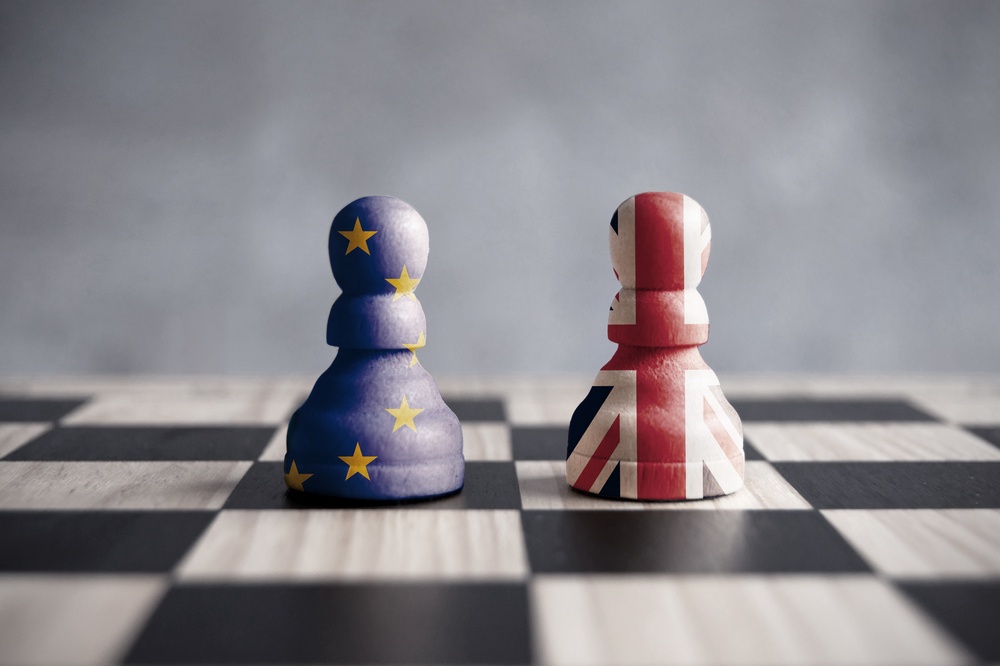15 Apr 2021
VAT changes from 1 July 2021 for sales to EU consumers

I know we are all still getting to grips with the trade, import taxes and VAT changes introduced for post-Brexit sales of goods from the UK to EU customers.
Unfortunately, there is more just over the horizon with fundamental changes from 1 July 2021 to the collection of VAT on the sale of both goods and services to EU customers.
Overview
The EU is making changes to the VAT treatment of supplies to consumers.
- It wants to tax services received by EU consumers from non-EU suppliers
- It has abolished the relief from import VAT for consignments of less than 22 Euros
- It is introducing new measurers to facilitate compliance
Three schemes will be in place from 1 July to deal with Business to Consumer (“B2C”) supplies of goods and services to EU customers. Two of the schemes are enlarged versions of existing schemes. The third scheme deals specifically with distance sales of goods from stock held outside the EU. In each case, the scheme is designed to facilitate the collection of VAT by one EU member state, which is then passed on to the member state in which the supply is deemed to take place.
The overarching principle for both goods and services is to collect VAT by reference to the place where the customer belongs or where the transport of goods ends. If you register for VAT using one of these schemes, you will complete one return for all EU sales covered by the scheme, rather than being required to register for VAT in all member states in which your customers are based. This one stop shop (OSS) return will allow you to declare sales across all 27 EU member states.
However, it is important to recognise that UK businesses with no place of business in the EU may not have a “one size fits all” solution depending on whether it is involved in supplying goods or services, and in the former case, whether consignments are more or less than €150.
- The “Union Scheme” covers intra-EU supplies of goods and services for businesses with their place of business or a fixed establishment within the EU. The Union Scheme will also allow a UK business to hold stock within the EU (for example the Netherlands) and pay VAT for all EU sales to the Dutch tax authorities.
- The “non-Union Scheme” covers supplies of services to EU customers by businesses with no establishment within the EU.
- The “Import Scheme” covers the distance sale of goods below €150 fulfilled from stock held outside the EU.
Online Marketplaces
If you sell to EU customers using an online marketplace such as Amazon or eBay, you may be working with them to understand how best to provide stock to hold in warehouses in the EU. From 1 July, the marketplace or “deemed supplier” will account for VAT on your behalf if they facilitate the sale on their platform.
If you sell on both your own website and through a third party in this way, you are likely to have an obligation to account for EU VAT alongside the VAT being paid on your behalf by the online marketplace.
What should I do?
At present, you may be working through the implications of incoterms and whether to sell goods delivered duty paid (DDP), delivered at place (DAP) or in some cases ex-works (EXW). If you are selling DDP, you may also be grappling with the potential requirement for multiple VAT registrations across the EU.
These schemes have the potential to simplify your EU profile for sales of goods, as you may only need one VAT registration in one EU member state. It may help to consider how these schemes would work at a practical level, as part of the need to rethink the basis on which you sell to your EU customers.
Sales of goods
- The Union Scheme will work for you if you are prepared to hold stock in the EU. Your business will register and file its OSS VAT return in that country and pay VAT using sales information for each member state.
- The non-Union Scheme is not relevant to sales of goods.
- The Import Scheme will allow you to choose any EU member state to register for the import one stop shop (IOSS) scheme. This is only relevant for B2C sales below €150. The IOSS scheme also requires you to appoint an intermediary to act on your behalf if you have no establishment in the EU.
Supplies of services
- The Union Scheme will work for you if you have a fixed establishment within the EU. You will register for OSS in that country and pay VAT by reference to sales across the EU.
- The non-Union OSS will work for you if you do not have a fixed establishment in the EU. You can choose to register in any EU member state and account for VAT through the OSS VAT return in that country.
- The IOSS scheme is not relevant to supplies of services.
A final note on compliance
The OSS and IOSS schemes have very little flexibility to backdate the point at which you join and start paying VAT. If one of these schemes can make life simpler, it pays to plan ahead to avoid multiple VAT exposures in the EU before joining one of the schemes.
Contact us
If you require any advice regarding the above please get in touch with Adam Lloyd, VAT Manager.